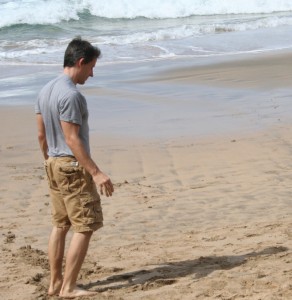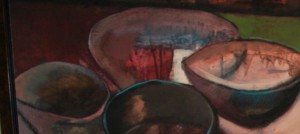I am starting off the New Year with a new and improved Blog, thanks to the technical assistance of my brilliant son, Nick!
Monthly Archives: December 2012
Lead Paint, Vodka, and the Human Condition
I was standing in line at the customer service counter at my local grocery store, when the young man in front of me turned his head a couple of times and on the third time addressed me, in halting English, with this question, “Why does company put lead paint on toy?” He nodded toward a customer alert printed in huge type and taped to the customer service window.
“It makes the paint shiny,” I said, sort of rolling my eyes to convey my disapproval of that particular technique.
“But what about common sense?” he asked. He gazed at me intelligently through wire-rimmed glasses. This man appeared young enough to be my grandson, and I would be proud to have a grandson who wasn’t afraid to pose important questions, even to a stranger. Based on his accent, I surmised he might be from Russia. He shrugged his narrow shoulders and shook his head, adding, “Where is common sense?!”
“Common sense can be used in different ways,” I said. “I agree with you that it is common sense to protect children from poison. But pure capitalists believe it is common sense to make a bigger profit, no matter how you do it.” He smiled and nodded, and I was instantly grateful that my time standing in line could be spent in one of my favorite pursuits: discussing political philosophy.
My new acquaintance was now leaning in closer to the alert so as to read the small print describing the toy train being recalled. Meanwhile, I became emboldened as my mind presented me with – alas, it is a passion! – political rhetoric. “That’s why I’m a Democrat,” I announced. Soon he would be a voter, I reflected, and perhaps I could set him on the true and enlightened path. I spoke again: “Democrats believe that capitalism should be regulated in order to protect consumers.” He appeared interested, so I continued: “Republicans often believe in pure unregulated capitalism. They think corporations should do whatever they can to increase their profits. It is up to the consumer to beware. But does it make sense for every mother to conduct a lead paint test on each toy she buys?”
I knew I was leaving out part of the standard justification for a free market economy. Republicans typically are convinced that eventually the market will self-correct. Consumers, they reason, eventually wise up and stop buying from companies that produce dangerous or defective products or companies that pollute the environment. But, of course, Republicans also tend to leave something out from the debate: they leave out the part about all the damage done before consumers recognize problems in products and services. Consumers don’t always have a quick and effective way to vote with their pocketbooks. My main point stands: Democrats favor more regulation, Republicans less.
I’ve learned to make these little speeches with casual nonchalance since moving here to the sedate northwest, more reserved than other places I’ve lived. In Texas and in the Midwest, for example, political debate could even crop up among women standing in line to use a public bathroom. And certainly on park benches, and at post offices and bus stops. While living in Germany, I noticed how strangers freely give unsolicited opinions – even prescribing how a certain unruly child should be handled or when a specific yard should be mowed.
Perhaps this young man’s national origins made him more open to conversations with strangers. He seemed, at the very least, as entertained by our dialogue as was I. The customer service clerk, now just two customers away, glanced in our direction, but I doubted if she could hear us through the Plexiglas. Oh, well. I already knew her politics. Once when I was outside this store, arguing with a petitioner who was collecting signatures to do away with the “death tax,” she had come running up to the petition table. Apparently on her way back inside from a cigarette break, she shouted toward the petitioner, “There’s already a million dollar exemption for crying out loud. Rich people don’t need more breaks!” Exactly the point I had been making that fine day. She was a political ally and I took comfort in suspecting she would side with me on this lead paint issue. At the very least, she must have been annoyed in recent days to have had her line clogged up with worried mothers returning shiny little trains.
Now it was the man’s turn to make his return at the counter. As he did this, I busied myself with getting my receipts ready. My turn came next, and the clerk was quick and efficient. Soon I was on my way, sans package of unwanted merchandise. To my surprise, the man had paused.
“You say lead paint make toys shiny?” he asked.
“Yes,” I replied. “In fact, I can tell you something funny about that. Do you know Bill Maher on TV?”
“No.”
“He’s a satirist and a comedian. He said that it’s ironic that Americans just love things that are bright and shiny. And now, we are literally being poisoned by the stuff that makes thing bright and shiny.”
He laughed a hearty laugh.
“That like in my country, we, too, have joke,” he said. “In Russia, we all drink vodka, we love vodka. We have joke that we crazy because we say same thing that make other people sick and die — for us, we Russian, it make us healthy, live forever.”
We both broke into laughter. And for a moment, there we were, an American in her 60s, a Russian immigrant in his 20s, standing in the aisle at the grocery store, laughing our heads off at lead paint, vodka, and the perilous human condition.
Purging Catalogs from Our Mailbox to Combat Global Warming
Yikes! Something had to be done! The torrent of catalogs arriving in our mailbox each week had become almost unbearable. To fight back, I took to tearing off the back covers and systematically phoning each company to request being taken off their mailing list. This task was surprisingly pleasant and gave me a sense of accomplishment. All the customer relations people were friendly, and many said they understood completely. I even had an opportunity to mention global warming to a few of them. Getting rid of catalog subscriptions was akin to pulling crabgrass – spotting those little nuisances and uprooting them one by one.
Of course, almost every customer relations person closed the conversation by saying it could take several months for the catalogs to cease, as many were “already in the pipeline.”
While phoning 32 companies, I alphabetized the list so that when new catalogs arrived, I could quickly assess whether another phone call was indicated. After years of being horrified by the phrase, “Shop till you drop,” I wondered if I had somehow become addicted to shopping without realizing it. I did sometimes head to the mall to spring loose from occasional funks and writer’s blocks. Shopping for things one really needs is, of course, a necessity. But had shopping become not just a means to an end, but an end in itself? Had catalogs become a gateway drug to a shopping addiction?
I took a cold hard look at my list to honestly assess what I had been buying that might have led to this glut of shiny seductive catalogs. I was surprised to discover that I had, indeed, made purchases from about half of them. I had bought a singing teakettle from Crate and Barrel, dog vitamins from Drs. Foster and Smith, boots from Eddie Bauer, and yes, gifts from Harry and David. And there was that cheesecake that I bought for myself! Hardly something I needed!
Moving alphabetically down the list, I recalled buying rose bushes from Jackson and Perkins, a lampshade from Lamp’s Plus, furniture covers from Lillian Vernon, a jacket from L.L. Bean, a car-visor-sun-zapper from Plow and Hearth, bean bag ottomans from Pottery Barn, and storage baskets (for my unfinished essays) from West Elm. And a few other purchases, most of which were not necessities. Meanwhile the catalog subscriptions seemed to metastasize.
I was glad I had called off so many companies before we left for our two week vacation. But, when we returned, the accumulated mail still filled a huge plastic bin, and half the bulk consisted of catalogs – an average of two a day! I ripped off all the back covers, tossing the new harvest into our recycle bin with alacrity … fighting the impulse to check out that new “harp” end table from one company or the bird-motif fleece jacket from another. “Mustn’t be tempted,” was the refrain in my mind as I whisked each enticing offer out of sight.
Fifteen of this new crop were repeat offenders, and I put checkmarks on my list to so indicate. Yes, they had warned me this would happen, but I was going to keep close tabs just in case another phone call was necessary! (I noticed that I had TWO new catalogs from Pottery Barn, a company with, apparently, an unusually long and prolific pipeline.)
I was beginning to wonder if this catalog purge was ever going to pan out. The problem seemed intractable. I had hoped to illustrate how easy it is to simplify one’s life while saving trees and cutting down on fossil-fuel energy used to publish and transport catalogs to our homes — and to subsequently schlep all this paper to recycling centers. When, if ever, could I report success?
And then it happened. Last Thursday, I went to my mailbox, and I found it! A tidy stack of mail, small enough to easily fit in one hand while I held the dog’s leash in the other. Usually, embarking on a walk with my dog, I would rifle through the contents of the mailbox with one hand and then leave it there – the mail, not the hand — until I had walked Toby and taken him back inside. Then, I would return to the mailbox and use both hands to haul the unwieldy mass of flyers, catalogs, and mail into the house — sometimes having to chase down a wayward flyer blowing down the street. But halleluiah! Today’s mail was a beautiful little stack of envelopes. Not a single catalog.
Oh, I know that the battle is not yet won. I know there will be hard days ahead … days when the mailbox again sports an untidy stack of catalogs. Days when I have to phone 15 more companies. (Even a day when I gird up my loins and phone Pottery Barn and ask them just how long their pipeline is, for heaven’s sake.) This is a marathon, not a sprint.
But on Thursday the inside of my mailbox looked like one of those pictures one sees on a holiday card. The feeling that swept over me was downright nostalgic. It was a Currier and Ives moment. My mail was simply mail. How pretty. How quaint. How simple. And I like to think that somewhere in the Northwest, a branch of a tree has been saved and is absorbing C02 that would otherwise go into the atmosphere – an atmosphere that most decidedly does not need it. And I hope that a little less gasoline will be pumped into delivery and garbage trucks for my dubious benefit. And that, as a result of all this, a cubic inch of ice in Antarctica will remain frozen, as it should be, and not melt away into the rising and troubled sea.


